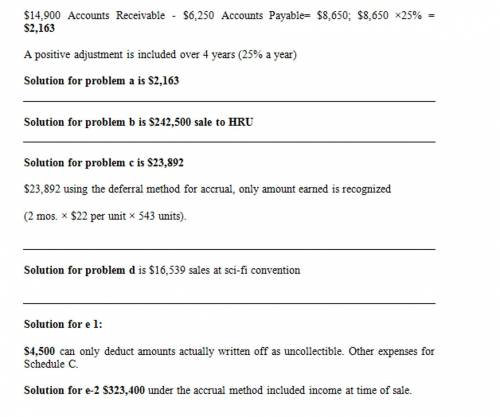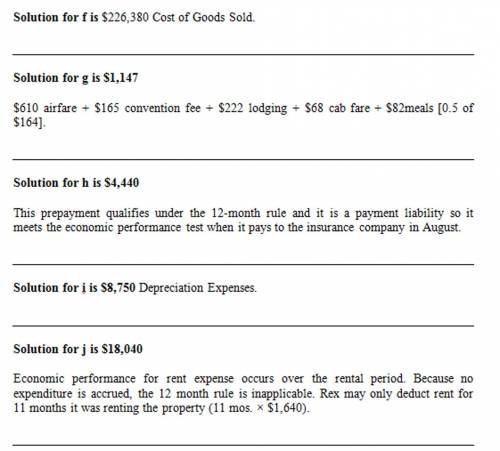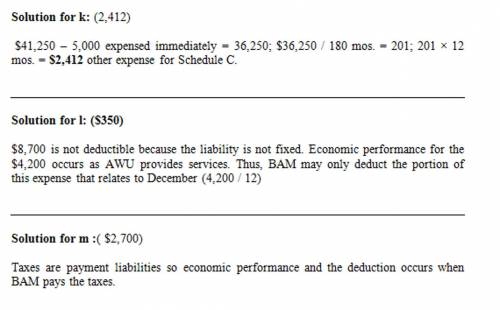 1
1 Answer:
Answer given below.
Step-by-step explanation:
Searching selves , the unexpected blooms ,
Awakening hearts , journey looms .
Curiosity fills pages , essence unfurls ,
Identity puzzle weighs , a soul in swirls.
Heritage 's embrace , Kolkata to dream ,
Fusion of worlds , harmony gleam .
Culture's clash , a tale of grace ,
Belonging in tale , a woven embrace.
Chapter unfolds , fourteen years gone ,
Gogol's birthday , time moves on.
Celebrate story , a symphony near ,
Narrative woven , echoes clear .
As Gogol grows , inspire extends ,
Essence weaves , a journey transcends.
In this found poem , quest we relate ,
For identity echoes , the paths we create
 1
1 Answer:
Poem with highlighted words given below:
Step-by-step explanation:
It is another excuse for a party,
a tame affair with pizzas and Ping-Pong.
For the first time, he has said no.
The Bengali celebration, held on the closest Saturday,
forty guests, dazzling saris,
a group of men starting a poker game.
Gogol is the oldest child,
but he and Moushumi have nothing to say.
She reads Pride and Prejudice,
while the children watch TV.
Presents are opened, dictionaries, calculators,
ugly sweaters, and more.
His father gives him a book,
The Short Stories of Nikolai Gogol.
Gogol examines the picture,
relieved to see no resemblance.
He hates questions about his name,
hates having to explain.
His name is both absurd and obscure,
neither Indian nor American.
He wishes he could disguise it,
shorten it somehow.
He dislikes being Gogol,
his father's favorite author.
He wishes he had been named Nikhil,
but it's too late now.
Gogol hates his name,
its irrelevance and weight.
But his father feels a kinship,
a special connection with Gogol.
He keeps the explanation to himself,
a silent secret. G
ogol locks the door,
settles down with his lyrics.
And he realizes,
Gogol isn't his first name.
It's Nikolai,
a last name turned first name.
 1
1 Answer
The answer and procedures of the exercise are attached in a microsoft excel document.
Explanation
Please consider the data provided by the exercise. If you have any question please write me back. All the exercises are solved in a single sheet with the formulas indications.



Solution:
a. $14,900 AR is $6,250
AP = 14,900 - 6250 = $8650
∴ $8650 * 25% = 2162.5
( 25% = Positive adjustment that is added for 4 years is 25% for an year)
b. $54,800
Sale to the HRU
c. With the help of deferral method for accrual , the amount obtain is follows:
2 mos. $21 for unit x 600 units
= $25,200
d. $17,496
Sales for Sci-fi convention
e. Will only deduct money i.e. Considered as noncollectable or else expense for schedule c
= $2100
For the accrual method given income at the time of sale
= $233100
f. Costs of goods which are sold
= $159840
g. As $610 airfare in addition with + $165 convention fee also + $222 for lodging +$68 for cab fee+ $164 for meals
= $1229
h. As the earlier payment qualifies comes under the 12-month rule and which is payment liability thus it meets the economic performance test when it pays the insurance company in august
= $5040
i. For depreciation $8450
j. Economic performance for rent expense happens for the rental period
Due to no expenditure has happened , the 12 month rule is inapplicable
Rex may only deduct rent for 11 months it was renting the property ( 11 months * $1710 )
= $18810
K. As the expended immediately = $41,250 ; $41,250 / 180 months = 229
229 * 12 = 2750 other expense for schedule c
L. As $7900 is un-deduct able due to liability which is not constant
Economic preference for the $4200 occurs as AWU provides services
Also BAM may only cut the portion of this extra credit that relates to
December ( 4200 / 12 ) = $350
M. As tax payment liabilities are economic performance and the deduction occurs BAM pay taxes
= $5100
 78
78 The best rebuttal to the counterclaim is A. However, it is more important that students are taught to manage their time in spite of the distractions that will always be around them. Nowadays, technology is an essential part of modern life. We are so used to it and our life is simpler with it but it is important to know how to manage it correctly so that it does not invade us. We must stop struggling with. We should work on trying to incorporate and use it usefully as a tool that works on our advantage. Talking with the children is extremely important so that they understand that´s extremely important they learn to organize their time in so that technology does not harm them since the time they lose now they must recover it in some way.
 78
78 The best rebuttal to the counterclaim is A. However, it is more important that students are taught to manage their time in spite of the distractions that will always be around them. Nowadays, technology is an essential part of modern life. We are so used to it and our life is simpler with it but it is important to know how to manage it correctly so that it does not invade us. We must stop struggling with. We should work on trying to incorporate and use it usefully as a tool that works on our advantage. Talking with the children is extremely important so that they understand that´s extremely important they learn to organize their time in so that technology does not harm them since the time they lose now they must recover it in some way.
 6
6 im not really good with debates but i like ta argue so ill try
hope this helped :)
Explanation:
Loyalist or Patriot
Various events of the 1700s led colonists to develop strong beliefs regarding the British government. The Trial of Peter Zenger, The Proclamation of 1763, the Boston Massacre combined with constantly changing taxes and rules that governed them made many think that self-governance was the best path for the colonies. Others felt that the King and his appointed officials had their best interests in mind and preferred to stay loyal to the crown. Later, during the American Revolution, most colonists took one side or the other. Either they were Patriots or loyalist. Patriots believed that the colonies should break away from England and govern themselves. Loyalist believed that the colonies. Other famous loyalists include Thomas Hutchinson (governor of Massachusetts colony), Andrew Allen, John Butler (leader of the loyalists troops Butler 's Rangers), and David Mathews (mayor of New York City). What happened to loyalists during the war?
Life for the loyalists became increasingly difficult during the war. Loyalists who lived in areas controlled by the patriots were in constant danger from radical patriots. Many of them lost their homes and businesses.
Many loyalists left the country and went back to Britain. Others decided to help the British fight the patriots. They either joined the British army or formed their own groups of fighters such as the Loyal Greens and the Royal American Regiment.
What happened to the loyalists after the war?
Many loyalists moved to England after the war ended. A lot of them lost their fortunes and land that they had built up over years in the Americas. In some cases the British government paid them for their loyalty, but it was usually not nearly as much as they had lost. The United States government wanted the loyalists to stay. They felt the new country could use their skills and education. Few stayed, however.
In early America, there were three factions that developed within the colonies- Loyalists, Patriots, and fence-sitters (neutral). This melting pot of different ideas, goals, and outlooks is what made pre-Revolutionary War America so volatile. These three factions seem easy to identify, Patriots wanted freedom from the crown all together, Loyalists want to stay British, and fence-sitters want to stay out of the political battle all together. However, it goes much farther than that, many different backgrounds and goals drove these people forward. Many did not take up the title of Loyalist or Patriot unless the struggles affected them directly, many more only took sides when it was profitably to.
Not because they believed in their cause but it was a way to save their financial wealth.
 6
6 im not really good with debates but i like ta argue so ill try
hope this helped :)
Explanation:
Loyalist or Patriot
Various events of the 1700s led colonists to develop strong beliefs regarding the British government. The Trial of Peter Zenger, The Proclamation of 1763, the Boston Massacre combined with constantly changing taxes and rules that governed them made many think that self-governance was the best path for the colonies. Others felt that the King and his appointed officials had their best interests in mind and preferred to stay loyal to the crown. Later, during the American Revolution, most colonists took one side or the other. Either they were Patriots or loyalist. Patriots believed that the colonies should break away from England and govern themselves. Loyalist believed that the colonies. Other famous loyalists include Thomas Hutchinson (governor of Massachusetts colony), Andrew Allen, John Butler (leader of the loyalists troops Butler 's Rangers), and David Mathews (mayor of New York City). What happened to loyalists during the war?
Life for the loyalists became increasingly difficult during the war. Loyalists who lived in areas controlled by the patriots were in constant danger from radical patriots. Many of them lost their homes and businesses.
Many loyalists left the country and went back to Britain. Others decided to help the British fight the patriots. They either joined the British army or formed their own groups of fighters such as the Loyal Greens and the Royal American Regiment.
What happened to the loyalists after the war?
Many loyalists moved to England after the war ended. A lot of them lost their fortunes and land that they had built up over years in the Americas. In some cases the British government paid them for their loyalty, but it was usually not nearly as much as they had lost. The United States government wanted the loyalists to stay. They felt the new country could use their skills and education. Few stayed, however.
In early America, there were three factions that developed within the colonies- Loyalists, Patriots, and fence-sitters (neutral). This melting pot of different ideas, goals, and outlooks is what made pre-Revolutionary War America so volatile. These three factions seem easy to identify, Patriots wanted freedom from the crown all together, Loyalists want to stay British, and fence-sitters want to stay out of the political battle all together. However, it goes much farther than that, many different backgrounds and goals drove these people forward. Many did not take up the title of Loyalist or Patriot unless the struggles affected them directly, many more only took sides when it was profitably to.
Not because they believed in their cause but it was a way to save their financial wealth.
 7
7 The United States has made great strides in recent years, but many believe it will be several more years.
Winning game does not always translate into skill improvement.
Explanation:
The story is about the youth football academies from where great soccer players of all the times have come out like David Beckham, Diego Maradona, Pele and many others. These academies put in a lot of efforts to train the soccer players and also provide them the training for free.
These academies improve the quality of the game of the players but if it does not improve then they are not accepted by the academy anymore even if they have spent many years in the academy. But their prime focus of these academies is to develop elite professional players.
 7
7 The United States has made great strides in recent years, but many believe it will be several more years.
Winning game does not always translate into skill improvement.
Explanation:
The story is about the youth football academies from where great soccer players of all the times have come out like David Beckham, Diego Maradona, Pele and many others. These academies put in a lot of efforts to train the soccer players and also provide them the training for free.
These academies improve the quality of the game of the players but if it does not improve then they are not accepted by the academy anymore even if they have spent many years in the academy. But their prime focus of these academies is to develop elite professional players.

It will provide an instant answer!
